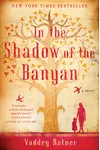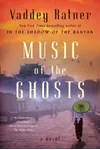Picture a Cambodian-American storyteller who transformed unimaginable hardship into breathtaking novels—meet Vaddey Ratner! A survivor of the Khmer Rouge genocide, Ratner weaves tales of resilience and humanity that captivate readers worldwide. Her lyrical prose and powerful narratives shine a light on Cambodia’s dark history, making her a unique voice in contemporary literature.
Born into a royal Cambodian family, Ratner’s life took a dramatic turn at age five, when the Khmer Rouge seized power. Her journey from refugee to bestselling author is as inspiring as her novels, which blend personal experience with universal themes of survival and hope.
The Making of Vaddey Ratner
Vaddey Ratner was born into the Sisowath royal lineage in Cambodia, a descendant of King Sisowath, who ruled in the early 20th century. In 1975, the Khmer Rouge upended her privileged life, forcing her family into labor camps. Enduring starvation, forced labor, and the loss of loved ones, Ratner and her mother escaped in 1979. Arriving in the U.S. in 1981 as refugees, she faced language barriers but excelled academically, graduating as her high school valedictorian and later summa cum laude from Cornell University, where she studied Southeast Asian history and literature. Her academic background and personal trauma shaped her writing, which honors the lives lost during Cambodia’s genocide.
Vaddey Ratner’s Unforgettable Stories
Ratner’s debut novel, In the Shadow of the Banyan (2012), is a fictionalized account of her childhood under the Khmer Rouge. Through the eyes of seven-year-old Raami, the novel explores the devastation of war, the power of family bonds, and the resilience of the human spirit. Its poetic prose and vivid imagery earned it critical acclaim, including finalist status for the PEN/Hemingway Award and selection for the National Endowment for the Arts Big Read program.
Her second novel, Music of the Ghosts (2017), delves into the aftermath of the genocide. Following Teera, a Cambodian-American woman seeking answers about her father’s fate, the story examines atonement, forgiveness, and the lingering effects of trauma. Praised by the New York Times for its “tenaciously melodic” language, it was longlisted for the Aspen Words Literary Prize. Ratner’s style—lyrical, evocative, and deeply personal—blends Cambodian cultural elements like music and folklore with universal themes, creating stories that resonate across cultures.
Both novels showcase Ratner’s ability to transform pain into art. Her writing is not just about survival but about finding beauty and meaning in the face of loss, making her work a testament to the enduring power of storytelling.
Why Vaddey Ratner Matters
Vaddey Ratner’s novels give voice to the silenced victims and survivors of the Khmer Rouge, preserving Cambodia’s history through literature. Her work bridges cultures, offering Western readers a window into Southeast Asian history while inspiring Cambodian diaspora communities to reclaim their stories. By speaking at events like the PEN World Voices Festival and the United Nations Association, Ratner advocates for human rights and the transformative power of art, cementing her legacy as a literary and cultural figure.
Her influence extends beyond books, encouraging readers to confront difficult histories with empathy and hope. Ratner’s journey from mute refugee to eloquent novelist embodies the triumph of the human spirit, making her an inspiration for aspiring writers and survivors alike.
- Born: 1970, Cambodia
- Key Works: In the Shadow of the Banyan, Music of the Ghosts
- Awards: PEN/Hemingway Award Finalist, Aspen Words Literary Prize Longlist
- Education: Summa cum laude, Cornell University
Snag In the Shadow of the Banyan and dive into Vaddey Ratner’s lyrical world of resilience and hope!

